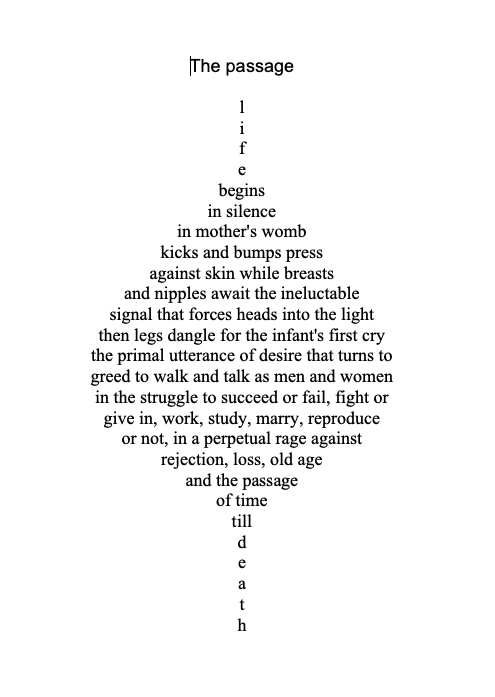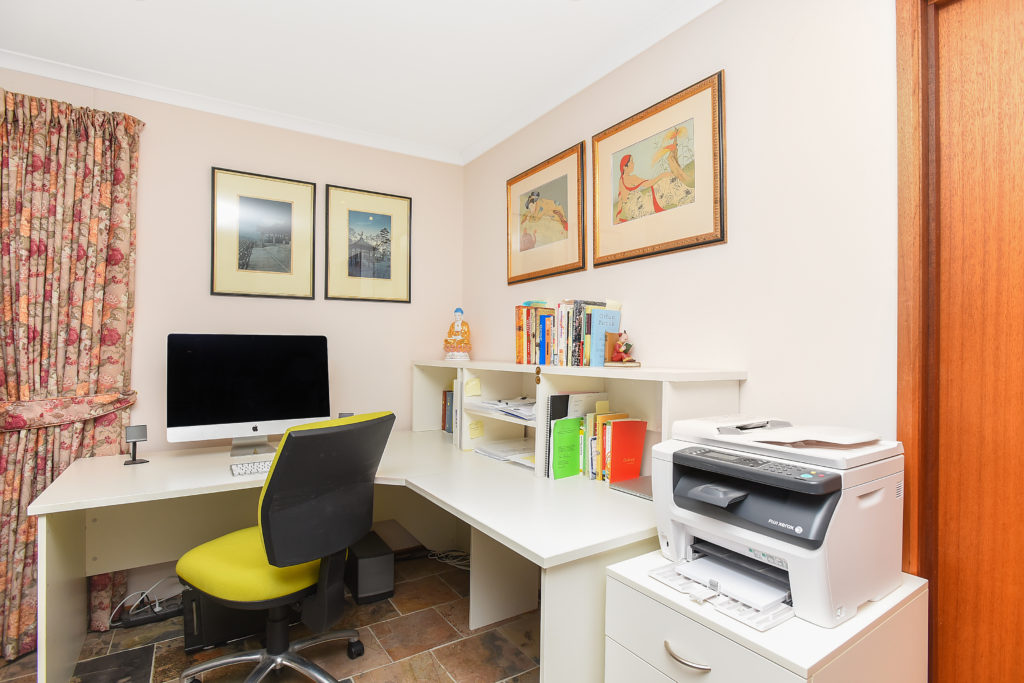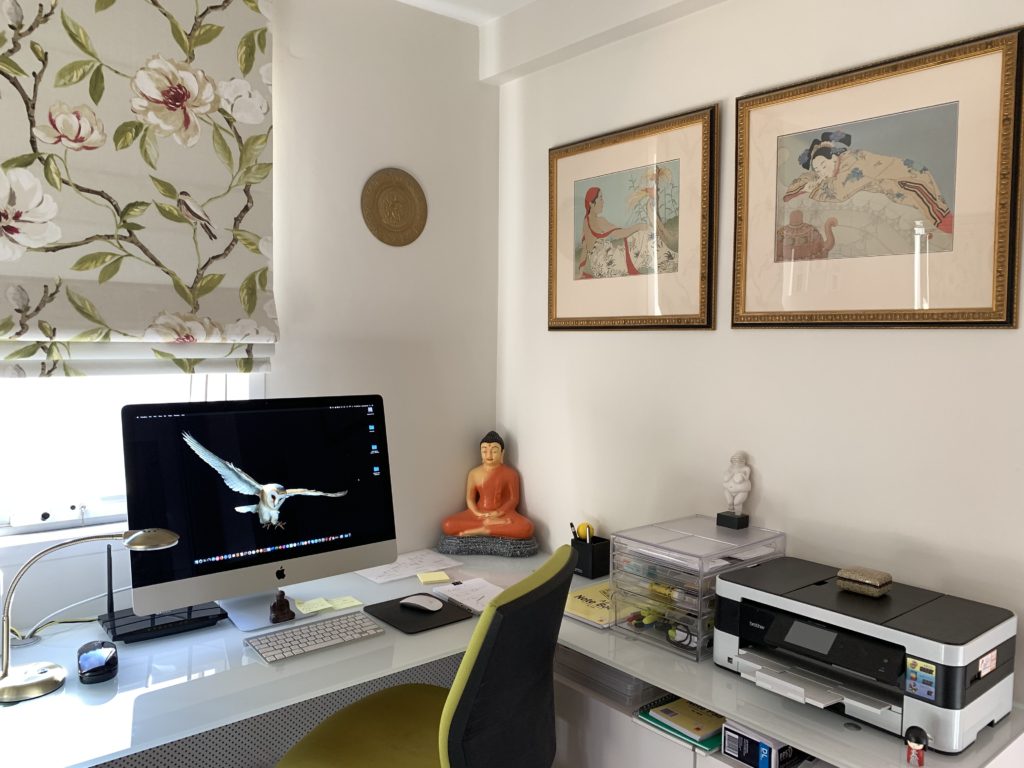My Definition of Old Age
Old age is the time for acceptance. If in adolescence we prepare for a good life, in old age, we must prepare for a good death. As we age, birthdays, New Year Celebrations and anniversaries flick by in the blink of a sleeping eye.
When (life) time is short, there are two keys to creative ageing, acceptance and downsizing. Neither is difficult because the ageing process itself invites us to be honest with ourselves, to get real. And when we become more accepting of our limitations, the easier it all becomes.
Along the way, physical and emotional signs force us to downsize — even minimalize — expectations, take stock and accept the process.
Early Signifiers
When my children were in their teens, I had a strong sense of their emergence, first from my body, then out of the crib and into the house, the garden, school and the world beyond. I understood then, in my early middle years, that I was on the cusp of ‘going down’ the other side.
I recently wrote this poem articulating how I felt all those years ago.

Key 1: Accept Signs of Change
Working in my fifties as an anthropological consultant in Queensland, I lived for a time in Coolangatta on the Gold Coast. Although I had not until then thought much about death, I clearly remember telling my Adelaide-based brother on the phone one day that, should I pre-decease him, I was not to be buried on the East Coast. It never felt like ‘my place’. I didn’t belong.
Looking back, I hadn’t recognised that I may have disliked Coolangatta because it was showing me something I was not ready to hear; I had aged. At shopping centres, all I could see were old people. When I noticed an old woman’s reflection in a mirror or shop window, I’d do a double-take when I realised it was me.
Coolangatta then catered for retirees. Those who failed to notice or preferred to ignore the signs that life expectancy was shrinking, headed north to Surfers Paradise for supplies of haute couture, gold, diamonds, bleach, painted nails and lots of wine to hide behind. As if the high-rise building shadows on Surfers’ famous beach strip were not warning enough.
Haunted by the spectre of lost youth, I returned to Adelaide only to discover that women in their late fifties did not appeal to employers any more than they did, then, to me. (A lesson in self-hate there for anyone who recognises this)
My PhD and I picked up a scrap of casual work in a printing factory for a time and, for a few months I sold books at Dymocks. But my hope that being around literature would spur me on to write as I’d wanted to do since childhood did not come to anything. I looked for ‘proper’ work.
A couple of shaky years later, I won a contract position in Katherine in the Northern Territory, which jerked me back to the past. When I met the (very) senior public servant who was to be my superior, he lolled in his chair and smirked as he asked my age. ‘How old are you.’ was his only question. I realised from this series of events, that I seriously needed to retire.
Life Forces Us to Reflect
Although I was tempted back to work between the age of 68 and 71 to pay for a burst water heater, I officially retired at 60. The first three years were hard. Like many others, I’d identified for years with my profession. The experience is joked about as relevance deprivation. When I moved back to Adelaide, I found there was also social isolation. The space I’d once occupied had grown cold.
Looking to reinvent myself as an active retiree, I established regular life-writing workshops and meditation groups in my area. I volunteered at the local Community Centre, teaching people how to use their electronic devices and social media and was even the Buddhist Chaplain at Flinders University’s Oasis Centre for a year.
I was content enough but life had not finished with me. I lost my eldest son in 2014. A year later, I fell. A broken right shoulder thrust me into six weeks of home-bound solitude. Life dismantled me. I had to accept if not my vulnerability, at least the fact that I was no longer invincible.
Key 2: When Downsizing Becomes Fun
Fortunately, I started writing poetry in 2007, which kept me sane. Although I’d found creative expression in my home, garden and cooking over the years, poetry took me on an explicit journey. I did not realise at the time that I was heading down a new path.
Not long after my son’s death, I decided to move into retirement living. I put my house on the market and it sold in days. The settlement followed four weeks later. I remember thinking then that the universe moves fast when you are on the right track.
I thought I’d eliminated anything that wouldn’t fit in my tiny new unit. And that was a big downsize exercise. Yet, when the removalists tried to fit my desk and office equipment in, it was impossible, the desk alone let alone the cabinet I felt I could not leave behind, filled the entire space. I had to ask them to take the furniture and give it away.
In the pictures below, It might take a minute to spot the difference but I can assure you, my present space is a fraction of what I once had. Still, the new office looks ok don’t you think?


I took a while to settle into high-rise living but being in the heart of the seaside suburb of Glenelg allows me to attend writing workshops with ease and read at poetry events whenever I choose. I regularly catch up with friends in the restaurant and coffee strip at the end of the Glenelg tramline, 100 metres away.
Since moving, I’ve created my first web site, published two poetry chapbooks (a third came out in January 2020) and my first novel, On Gidgee Plains found a publisher. Although my book contract was rescinded when the publisher later ceased trading, this is what I mean when I talk about downsizing for creativity in old age. Being stripped of distractions as my strength and vigour decline has been my saviour. It gives me time to focus on my creative side.
From Downsizing…
After undergoing hip replacement surgery in 2018, I emptied my kitchen of all but the most basic of pots, plates and potato peelers. During convalescence, I went back onto Lite and Easy. A sudden and complete loss of interest in cooking made this permanent. My pantry is now empty. My time expanded.
As a person who’s moved so many times, downsizing was not hard for me. I have not always been so gracious about the physical decline that comes with ageing but the creative compensation is worth it. The medical fraternity (sic) describes me as someone with ‘multiple co-morbidities’ which translates into lots of little body bits in need of tender care. They can be trying at times. Here is my protest poem.
Post-op I'm not a patient patient. Some call me hard to bear But, how can I just lie around, wondering what to wear? There must be more to life than ageing gracefully; frenzy or rage are more my style than time's attempt to maim me. Take note — it is my body, this ageing lump of flesh and curiosity courses still through every vein and artery. While I'm not a poet's poet — be that as it may — I hope my words will scorch your ears forever and a day.
…To Minimalism
The shift from downsizing to minimalism became seriously personal. It is right to speak of downsizing a house, big furniture and even a kitchen. Still hidden in cupboards and the inner recess of my soul I harboured the detritus of unfulfilled aspirations. This required a more intimate level of tidying as described by Marie Kondo in her marvellous book, The Life-Changing Magic of Tidying.
My children had selected treasures and photos when I sold the house but in my little retirement unit a big stash of brushes, sketchbooks, coloured and lead pencils of all sizes, crayons, watercolours, acrylic and oil paints and all the appurtenances of a would-be artist were carefully hidden away.
I had been to art classes over the years. As a child, I sketched trees, grasses, horses and houses, but it was my romance with the idea of art that accumulated an expensive array of stuff. In one fell swoop, I let it all go.
Same with embroidery. Even though I’d failed sewing at school and, despite clumsy arthritic fingers, I’d filled my elderly space with clear containers of colourful threads, crystal and glass beads and exotic drawings that I wanted to translate into embroidered art.
Again, I had all the valuables and none of the skill. I bought embroidery, beading and how-to books, joined groups of kindly, helpful people, but the evidence was stark. I had no talent. The glorious bounty had to go.
I sold my academic library years earlier when I decided I was moving into the creative path of art and embroidery. That said goodbye to academe. Now, all that remains is a state of the art collection of writing tools: a 24″ iMac, a MacBookPro notebook, iPad, iPhone, top-notch software, a decent desk, a new colour laser printer.
No distractions. Only novels and poetry books.
Reflections
For most of us, health decline in old age is inevitable as Arthur Krystal observes in his article ‘Why We Can’t Tell The Truth About Aging: A long life is a gift. But will we be grateful for it?’ The New Yorker 4 November 2019.
Ageing is a natural process. My philosophy is that we should explore it with the same curiosity that infants bring to the discovery of fingers, toes and nose. We cannot jump up and down at cot-sides but we can bring interest, acceptance and maybe even joy to the process.
Being creative in any medium gives us something new to jump up and down about. I am never lonely because I have new friends — the characters in my novels — to play with. I also have a purpose. One novel soon to be released, one on the way and another burning inside me to write before I die.
In between, I write a lot of poetry about death and dying. We must not be afraid because it comes to us all. So, I urge everyone to be comfortable with downsizing. As we decline, there is no purpose in clinging to what we once had or were. I use my story and a few poems in this post to share how inspiration and creativity can emerge even in our older years.
Kintsugi fading from sight white hair, pale skin bloodless lips and a body shrinking — the therapist asks about age, profession, partner parents, children, siblings, and delicate jigsaw pieces resurrect a portrait in glorious colour traced with fine golden lines of life's fragility
Try This
Always write about what you know. Embellish with imagination.
Look at your dreams and aspirations. Write a poem about these. Don’t judge. Be real. Editing comes later. If you try to edit (critique in your mind as you write) you will suffer writer’s block.
Let me finish with my favourite poem which is apposite to today’s topic.
My Skeleton and Me I met my skeleton this morning as it sneaked into my mind — there it was, giant teeth infinite grin staring straight at me, eye sockets so deep my skin and flesh drowned in their hollows, yet we laughed giant jagged-jaw giggles and with each guffaw drew closer - tied to me by tendons cushioned by muscles my bony friend held me in a cradle of ribs that hurt as we cackled together for my leg twitched at random, warm and soft on the outside skinny and hard within - what a wicked joke life is we agreed: of a sudden, I felt sad bones outlast flesh I thought, without blood supply my friend's smile will turn to rictus, grotesque on lonely bones unless — ah! yes if I choose cremation, we shall convulse together one last time

